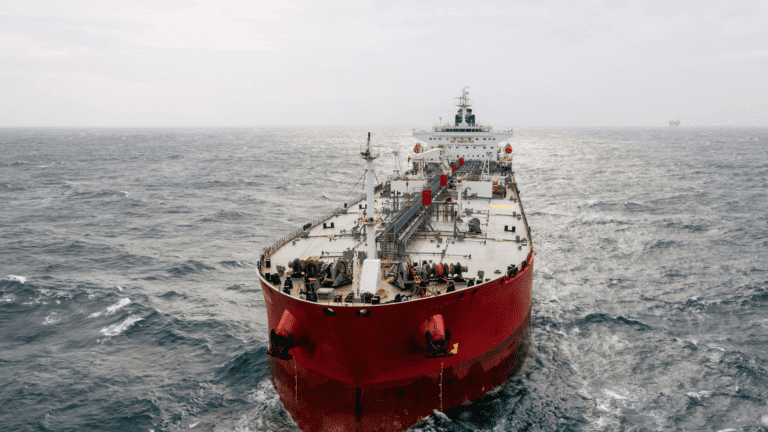 Marine refrigeration is one of the most challenging compressor applications. At sea, every compressor must deliver excellent performance and stand up to tough conditions.
Marine refrigeration is one of the most challenging compressor applications. At sea, every compressor must deliver excellent performance and stand up to tough conditions.
Luckily, there’s a range of compressor models for marine use. Cruise liners, logistics vessels, and off-shore platforms all require heavy-duty compressors, among many others.
If a compressor fails while a ship is en route to a new destination, there may be no way to divert the course that allows the crew to save perishable items. A fishing vessel may lose thousands of dollars in catch, while a cruise ship may need to write off both food items and costly pharmaceuticals.
Likewise, marine vessels can encounter adverse conditions that might prematurely age units or cause otherwise sound compressors to fail. It’s crucial to not only select the right compressor but take extra precautions to ensure it stands up to the usual 8-13 year tour of duty.
So, which compressors are the best?
Choosing the Best Compressors for Marine Use: Carrier Leads the Way
Marine refrigeration is a relatively small segment of the total compressor market. Not all of the top compressor brands manufacture large marine compressor units, so your selection is an even more important one. That is especially true if you want the combination of performance and cost savings you can get from a remanufactured compressor unit.
Carrier’s 5H80 and 5H120 compressors stand out when it comes to marine applications.
The 5H compressor models are known for delivering both efficiency and power by running large-scale units at a consistently lower RPM. The 5H models have been completely re-imagined to eliminate certain points of fault and drastically reduce the failure rate. This makes them ideal for offshore applications and vessels that may encounter severe weather and stormy seas.
The Carrier 5H80 is designed for an automatic unloaded start and is often attached to a high-efficiency motor. With smooth, unrestricted refrigerant flow, it is much less likely than comparable brands to fall prey to refrigerant slugging. Seal leakage is prevented thanks to the two-piece seal assembly.
Automatic capacity control enables the 5H80 to shift seamlessly to as little as 35% of full design load, saving money and improving the longevity of components through maximum efficiency. Positive pressure oil lubrication further extends the service life of sensitive parts.
The Carrier 5H120 offers the excellent operating advantages of the 5H80. However, it runs at a higher overall tonnage (120 compared to 80) and lower minimum RPM (900 compared to 1100). This allows you to optimize your compressor unit to your exact needs.
Notably, York also produces a range of marine compressors.
Of these, the York DXS45 is the most popular for demanding applications. However, Carrier units may be easier to service in some work environments. If you’re looking for a new unit, it’s a good idea to discuss your needs with experienced compressor technicians before you commit.
Extending the Life of Your Marine Refrigeration Compressor
At sea, it is even more important to make sure you are taking the right precautions to extend system life. Maintain your compressor regularly and perform an end to end system inspection if you are involved in any major weather events.
Be alert to changes in the work environment around the compressor: Moisture and temperature extremes can damage your unit. Wiring problems throughout the vessel’s power systems can also rapidly cause system performance to degrade.
Marine compressors “age” faster than their counterparts on land thanks to sea air and other factors. While a standard compressor may last ten years before wear and tear set in, your onboard compressor’s life could be 5-8 years. Watch out for any changes in how the refrigeration system operates or sounds. No one wants to be out at sea with a load of spoiling food!
A Remanufactured Compressor Keeps You in “Ship Shape”
As your unit ages, consider purchasing a remanufactured compressor. A remanufactured marine compressor provides performance comparable to an all-new unit at a substantial discount. Experienced remanufacturers can ensure the unit is seaworthy and meets the latest standards.
A “rebuilt” unit should not be mistaken for a true remanufactured compressor. Rebuilt units may be cleaned and repainted, but often have not received much – if any – testing or replacement of internal parts. On the other hand, a true remanufactured compressor has been disassembled in its entirety, cleaned out, and tested after replacing key components throughout the system which is something you would want for your marine vessel.
Remanufactured compressors are ideal for the marine environment. Many vessels cannot go out to sea without a compressor in working order. In the event of a sudden equipment failure, you have the opportunity to cut weeks off your turnaround time by ordering remanufactured equipment.
The ocean can be unpredictable, but your compressor doesn’t need to be. By selecting the right unit, performing regular maintenance, and connecting with a trusted remanufacturer, you’ll be ready for anything.












